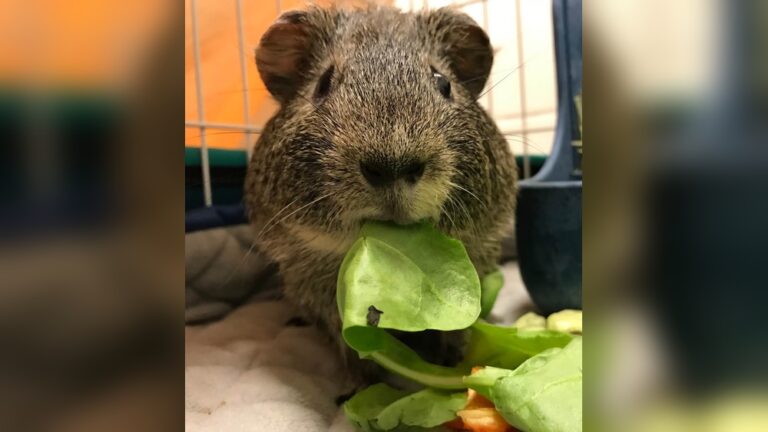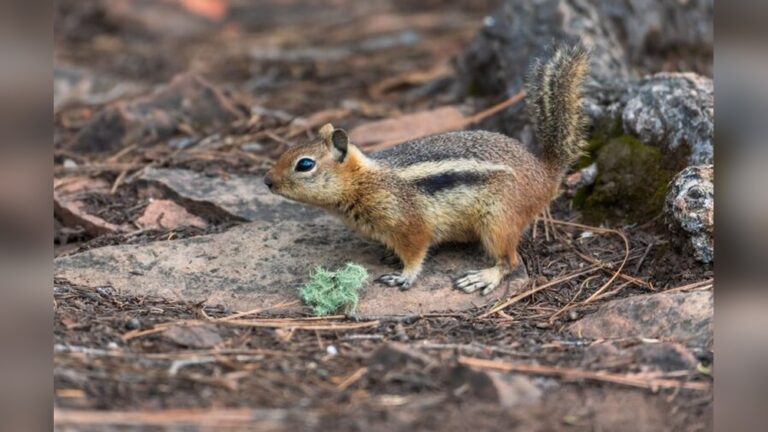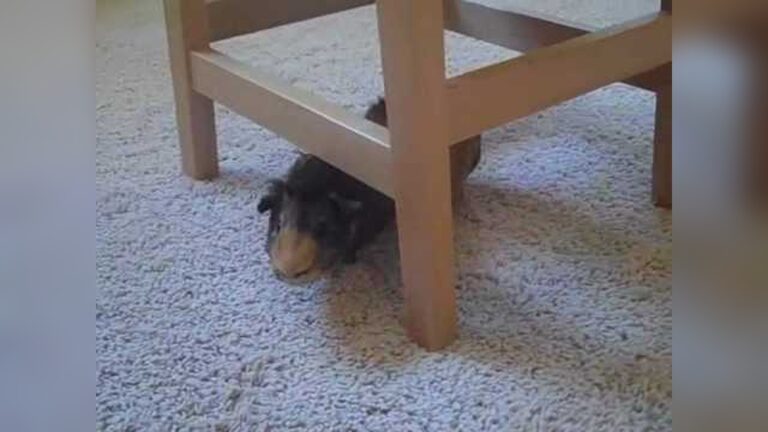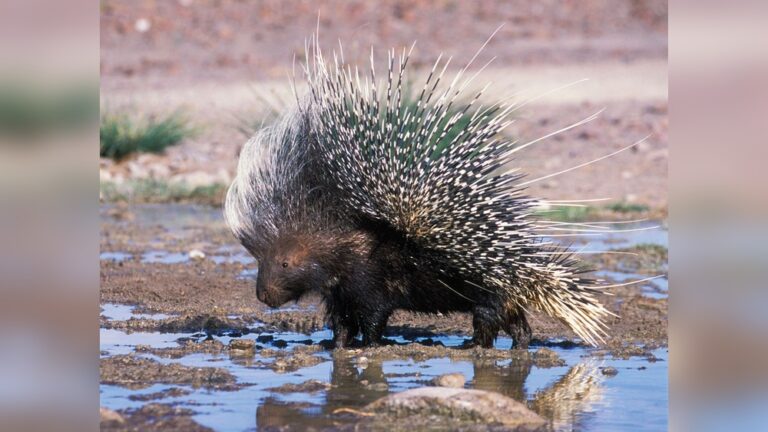Do Hamsters Eat Their Babies? Shocking Truth Revealed!
Have you ever wondered if hamsters really eat their babies? It’s a question that might make you feel uneasy, especially if you’re caring for these tiny pets.
Understanding why this happens can help you keep your furry friends safe and happy. You’ll discover the surprising reasons behind this behavior and learn practical tips to prevent it. Keep reading to protect your hamsters and ensure their little ones thrive.
Hamster Maternal Instincts
Hamster maternal instincts play a big role in how they care for their babies. These tiny animals show strong natural behaviors to protect and nurture their young. Understanding these instincts helps explain why hamsters act the way they do after giving birth.
Typical Motherly Behavior
Mother hamsters are very protective of their babies. They keep them warm and clean by grooming them often. The mother rarely leaves the nest, staying close to her pups. She feeds them by nursing and makes sure they stay safe from harm. Sometimes, the mother may seem aggressive if she feels her babies are in danger.
Nesting And Care Patterns
Female hamsters build soft nests using bedding and their fur. This cozy space keeps the babies warm and hidden from predators. The mother checks on her pups regularly and moves them if the nest feels unsafe. She also controls the temperature and comfort of the nest to ensure healthy growth. These care routines show her strong instinct to protect her offspring.

Credit: www.youtube.com
Reasons For Cannibalism
Hamsters eating their babies is a distressing behavior. It often puzzles many hamster owners. Understanding why this happens can help prevent it. Several key reasons explain this behavior. These include stress, health issues, and survival instincts.
Each reason affects the mother hamster’s actions differently. Knowing them helps in creating a better environment for the mother and her babies.
Stress And Environmental Factors
Stress is a major cause of cannibalism in hamsters. Loud noises, bright lights, and sudden changes upset them. A crowded or dirty cage adds more stress. The mother may feel unsafe and confused. This can lead her to eat her babies to protect herself.
Health Issues In Mothers
Illness or weakness in the mother can trigger this behavior. A sick hamster might not care for her babies properly. Sometimes, she might eat the weak or sick babies. This happens because she cannot support all of them. Poor health makes her act this way to survive.
Survival Instincts And Resource Scarcity
Hamsters have strong survival instincts. If food is limited, the mother may eat her young. This helps her save energy and resources. In nature, this behavior increases her chances of survival. It is a natural, though sad, response to scarcity.
Signs Of Cannibalism
Cannibalism among hamsters can be hard to spot at first. Knowing the signs helps you act fast. It protects the babies and keeps the mother safe. Watch closely for behavior and physical changes in the nest. These clues reveal if cannibalism is happening.
Observe the mother’s actions and the condition of the babies. Small details tell a big story. Recognizing these signs early can prevent harm and stress for your hamster family.
Behavioral Clues In Hamsters
A mother hamster eating her babies often acts restless. She may leave the nest frequently and seem anxious. Sometimes, she grooms herself more than usual. Aggressive behavior toward the babies or other hamsters is a warning sign. Sudden changes in feeding habits can also be a clue. These behaviors suggest stress or confusion, which may lead to cannibalism.
Physical Evidence In The Nest
Look inside the nest for missing or injured babies. Torn skin or blood stains are clear signs. The nest may appear disturbed or messy compared to before. You might find baby remains, such as small parts of fur or limbs. Such physical evidence confirms cannibalism has occurred. Checking the nest regularly helps catch these signs early.

Credit: www.newsweek.com
Preventing Baby Loss
Preventing baby loss is very important for hamster owners. Baby hamsters are small and fragile. They need special care to grow strong. Many factors can cause baby loss, but proper steps can help keep them safe and healthy.
Creating A Safe Habitat
Hamsters need a quiet, clean home to protect their babies. Use a cage with good ventilation and no sharp edges. Soft bedding helps keep the babies warm and comfortable. Avoid placing the cage in noisy or busy areas. A calm space reduces risks to the babies.
Minimizing Stress For Mother Hamsters
Stress can cause mother hamsters to harm their babies. Handle the mother gently and only when necessary. Keep other pets away from the cage. Avoid changing the cage setup too often. A calm mother is more likely to care for her babies well.
Proper Nutrition And Care
Good food supports the mother’s health and milk production. Provide fresh water and high-quality hamster food daily. Add protein sources like boiled egg or mealworms for extra nutrition. A healthy mother can better nurture her babies and reduce baby loss.
When To Intervene
Knowing when to step in is important to protect hamster babies. Most of the time, mother hamsters care well for their young. Yet, some situations require quick action. Watch closely for signs of trouble. Acting early can save the babies and reduce stress for the mother.
Identifying Risk Situations
Watch the mother’s behavior closely. Aggression or neglect may signal risk. If the mother bites or moves babies roughly, danger exists. Also, if babies cry often or stay cold, they need help. Illness or injury in the mother increases risk. Stress from loud noises or handling can cause harm.
Handling Hamsters During Birth
Limit contact during delivery. Touching the mother or babies can cause rejection. Keep the nesting area quiet and dark. Only check briefly and gently. Avoid strong smells on your hands. Use clean hands if you must touch. Stress can lead to harm or cannibalism.
Separating The Mother And Babies
Separate only if the mother is aggressive or sick. Use a clean, warm space for babies. Provide soft bedding and warmth with a heating pad. Feed babies with special formula if needed. Return babies to the mother once she calms down. Monitor closely after reuniting them.
Common Myths About Hamster Cannibalism
Hamster cannibalism is a topic surrounded by many myths. These stories often scare new hamster owners. Understanding the truth helps care for hamsters better. It also reduces unnecessary worry about their behavior.
Debunking Misconceptions
Many people believe hamsters eat their babies all the time. This is not true. Cannibalism in hamsters is rare and usually has a cause. It does not mean the mother is a bad pet.
Some myths say hamsters kill their babies out of anger. This idea is false. Hamsters act on instinct, not emotions like anger.
Another myth is that all hamster species do this. Only some species may show this behavior under stress. Most hamsters care for their babies well.
What Really Triggers This Behavior
Stress is the main trigger for hamster cannibalism. Loud noises, strong smells, or a messy cage can stress a mother. She may eat her babies to protect herself or save resources.
Hunger can also cause this behavior. If the mother lacks food, she might eat her young for survival. Providing enough food stops this from happening.
Inexperienced mothers may harm their babies unknowingly. They might be scared or confused about care. Giving a quiet and safe space helps reduce this risk.
:strip_icc()/hamster-3878853_1920-bdaa70e92b484d858cfd882c0044f2eb.jpg)
Credit: www.thesprucepets.com
How Smart Pets Lover Can Help You with Do Hamsters Eat Their Babies
Turning Understanding into Action: Learning from Hamster Cannibalism
Discovering that hamsters might eat their babies can feel alarming, but it opens a valuable window into their maternal instincts and survival strategies. Recognizing the signs of cannibalism and understanding its reasons—like stress or illness—helps pet parents create a safer, more nurturing environment. For instance, knowing when to intervene gently without disrupting the mother’s natural care is key to preventing baby loss.
At Smart Pets Lover, we believe every insight strengthens the bond between you and your furry friend. Observing your hamster’s behavior closely encourages responsible pet ownership and deepens your connection. Practical steps like providing a quiet habitat and limiting handling during the early days can reduce stress-triggered cannibalism.
- Monitor maternal behavior without intrusion
- Maintain a calm, secure environment
- Consult trusted resources or vets if unsure
If questions arise, reaching out to knowledgeable communities or veterinary experts can offer reassurance and guidance. After all, caring thoughtfully for your hamster’s family helps every tiny life tell its story—just like every wag, purr, and chirp does in our homes.
Frequently Asked Questions
Do Hamsters Really Eat Their Babies Often?
Hamsters may eat their babies rarely, mainly when stressed or feeling threatened. This behavior helps them protect remaining pups or conserve resources.
Why Do Hamsters Eat Their Babies Sometimes?
Hamsters eat babies due to stress, overcrowding, or lack of food. It is a natural survival instinct in harsh conditions.
How Can I Prevent Hamsters From Eating Babies?
Provide a quiet, safe environment with enough space and food. Avoid disturbing the mother during the first weeks after birth.
Is Baby-eating Common In All Hamster Species?
No, baby-eating varies by species and individual temperament. Some species are more prone due to stress or environmental factors.
Conclusion
Hamsters sometimes eat their babies, but it is rare. Stress, fear, or lack of food can cause this behavior. Most hamsters care for their young carefully. Providing a quiet and safe space helps prevent problems. Watching your hamster closely after birth is important.
Understanding their needs makes a big difference. Remember, this behavior is natural, not cruel. With proper care, your hamster family will thrive. Keep patience and learn from each experience.







